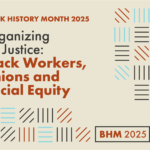This Sunday, February 14, isn’t just Valentine’s Day. For the last 26 years, at marches from coast to coast to coast, it’s been a day to commemorate the lives of Missing and Murdered Indigenous Women and Girls.
The very first march happened in 1991 out of a sense of anger and hopelessness following the murder of a Coast Salish woman on Powell Street in Vancouver.
Indigenous women have been persistent and forthright in raising awareness and demanding justice for the violence they experience. They led the call for an inquiry and have organized marches, roundtables and vigils, and the Canadian Labour Congress (CLC) recognizes their strong leadership. Without their work, families and communities of the Missing and Murdered Indigenous Women would continue to suffer injustice.
The labour movement is optimistic that the federal government will soon begin building a framework for a national public inquiry into the disappearances and deaths of indigenous women across the country.
In addition to a national inquiry, the CLC calls on the federal government to implement a strategy that includes clean water, affordable housing, accessible education and poverty reduction in Inuit, First Nations and Métis communities. If these issues go unaddressed, women and girls in these communities will continue to suffer unfairly and unjustly, lacking basic human rights.
“Unions and governments of all levels need to listen and respond to what women in Indigenous communities are fighting for,” said CLC Secretary-Treasurer Barbara Byers. “The federal government needs to truly listen to Indigenous people, to ensure all people of Canada receive basic human rights; there are no more excuses.”
You can support justice and human rights for indigenous women by attending a march this February 14.





